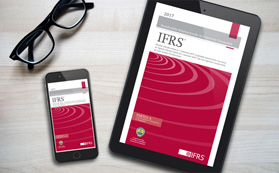The main changes to the Methodological Norms for the application of the Fiscal Code
Numărul 9, 8-14 mar. 2023 » Finance & Economics
Decision no. 181/2023 for the amendment and completion of title VIII „Excise duties and other special taxes” of the Methodological Norms for the application of Law no. 227/2015 regarding the Fiscal Code, approved by Government Decision no. 1/2016 was published in the Official Gazette no. 187 of March 6th, 2023.
The main changes to the Methodological Norms for the application of the Fiscal Code
1. Changes regarding the documentation required for the issuance of certificates for qualified consignees and consignors
Certified consignees and consignors, other than those established under the Law of Companies, will attach to the requests for the granting of the certificates provided for each category separately, instead of the confirmation of company details issued by the National Trade Register Office, from which the value of the share capital can be derived, the documents provided for by the legislation specific by which they were established from which the value of the affected patrimony and/or others similar result, as provided in the respective specific legislation.
2. The introduction of regulations regarding the partial loss threshold for processed tobacco
For processed tobacco, the threshold of partial loss, arising as a result of causes related to the nature of the products, is 0% according to art. 1 of Commission Delegated Regulation (EU) 2022/1636 of 5 July 2022.
3. Changes regarding the necessary documentation for the movement of excisable products under excise suspension regime
The movement of excisable products under excise suspension regime from a place of dispatch located on the territory of Romania is accompanied by a printed copy of the electronic administrative document or the unique administrative reference code, as the case may be.
The movement of excisable products that have been released for consumption on the territory of a member state of the European Union and that are moved to the territory of Romania to be delivered to Romania for commercial purposes or to be used in Romania, respectively from the territory of Romania to the territory of a member state of the European Union is accompanied by the invoice and the simplified electronic administrative document.
4. Changes regarding the guarantees that must be constituted by the authorized warehouse keepers
The guarantees constituted by the authorized warehouse keepers are submitted to the territorial fiscal authority within a maximum of 30 working days from the date when the authorization becomes valid. For the differences resulting from the update or execution of the established guarantee, authorized warehouse keepers, registered consignees, registered consignors, authorized importers, and fiscal representatives are obliged, within a maximum of 30 working days from the date of the update or execution of the guarantee, as the case may be, to transmit to the territorial fiscal authority the document proving the establishment/replenishment of the guarantee.
5. Changes regarding fiscal warehouses
In the sense of art. 362 para. (1) of the Fiscal Code, only excisable products belonging to one of the following product groups can be produced, transformed, held and stored in a fiscal warehouse under excise duty suspension regime:
a) alcohol and alcoholic beverages;
b) processed tobacco;
c) energy products.
In the fiscal production warehouse, the receipt, holding and storage under excise duty suspension regime of excise products used as raw material in the production process of excisable products and of excisable products resulting from the production activity for which the fiscal warehouse was authorized are allowed.
In the fiscal warehouse for storing energy products, it is allowed to hold and store biofuels provided for in point 113 para. (2), as well as additives used exclusively for mixing with heating fuels and traditional motor fuels.
6. Excisable products received under excise duty suspension regime by the registered consignee are accompanied by the unique administrative reference code.
7. Exemptions from the payment of excise duties provided for in article 395 paragraph 1 of the Fiscal Code are granted directly on the basis of the exemption certificate, as well as the form that must be used for the exemption certificate, as the case may be, if the beneficiary purchases the excisable products from a fiscal warehouse or from a registered consignor.
In the cases where the operations are exempt from VAT and the VAT and/or excise duty exemption certificate is used, it also ensures the application of the exemption from the payment of excise duties.
8. The Intra-Community movement of fully denatured alcohol is accompanied by the simplified electronic administrative document provided for in art. 416 of the Fiscal Code.
9. Provisions regarding the refund and remission of excise duties
For alcoholic beverages and processed tobacco products withdrawn from the market under the conditions provided for in art. 400 para. (2) of the Fiscal Code, excise duties can be refunded or remitted, as the case may be. Withdrawal from the market means the withdrawal from the economic circuit of products released for consumption, in order to recycle, recondition or destroy them.
10. The movement of excisable products under excise suspension regime from another member state of the European Union to a consignee in Romania authorized to receive the products under excise suspension regime is accompanied by the unique administrative reference code.
The movement of excisable products can be carried out under the suspensive regime of excise duties, according to art. 405 para. (1) and (2) of the Fiscal Code, only if it is covered by the electronic administrative document and is accompanied by the unique administrative reference code.
The proof of the end of the movement of excisable products under excise suspension regime is the export report drawn up by the territorial customs authority in Romania or, as the case may be, by the competent authority in the exporting member state, a report drawn up based on the information on the exit of the goods they received from the customs office of exit or from the office where the formalities for exiting the goods from the customs territory, provided for in art. 405 para. (1) and (2) of the Fiscal Code, certifying that the excise goods have left the territory of the European Union.
11. Distance sales
It represents a distance sale from Romania to another member state of the European Union the delivery of excisable products already released for consumption in Romania intended for sale to a person from another member state of the European Union who is not an authorized warehouse keeper, registered consignee or certified consignee and does not carry out an independent economic activity. The Romanian seller or his fiscal representative established in that other member state must comply with the legislation of that member state.
(Copyright foto: 123RF Stock Photo)






De 1 și 8 Martie „un cântec, un zâmbet, o floare” oferite mamelor, soțiilor, prietenelor, colegelor noastre
Arta Thaliei – de la viață pe scenă și de la scenă la publicul larg
Ziua Brâncuși sub semnul omagierii unei opere inestimabile
Pe întregul cuprins al țării, manifestări prin care toate artele transmit un mesaj comun, autentic umanist
Iași – opt zile de concerte memorabile
Zeița Thalia inspiră formule inovative în arta spectacolului
Ample programe științifice și culturale dedicate marilor personalități ale istoriei naționale
Ziua Culturii Naționale, prilej de celebrare a celor mai de seamă valori din patrimoniul românilor de pretutindeni